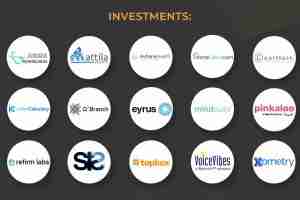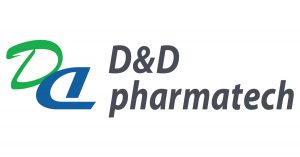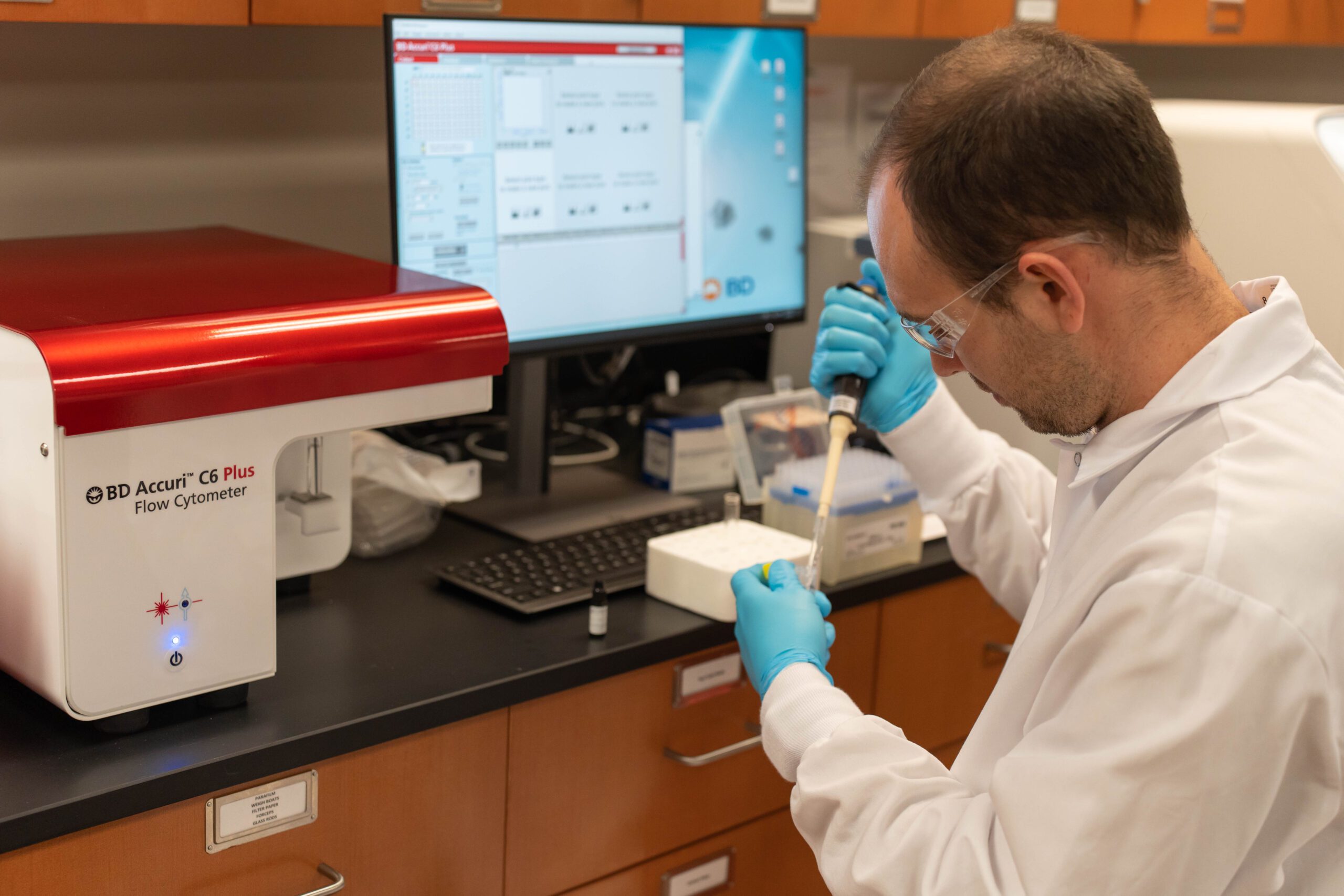
5 Things You’ll Learn in Frederick Community College’s New Cell and Gene Therapy Essentials Certificate Biotechnology Program
By Cat Thoreson | February 12, 2023
| BioBuzz has been connecting the life science workforce since 2009. We’ve built an expansive community in the Mid-Atlantic with a national readership that spans from Massachusettes to Florida, and New York to California. For our next chapter, we’re building a proprietary talent logistics model to help employers source and hire life science talent. Learn more. |
Frederick, Maryland has been hard at work growing its impact in the BioHeatlh Capital Region. Frederick Community College (FCC) has been hard at work growing accessibility to the field of biotechnology.
Their new Cell and Gene Therapy Essentials Certificate joins their robust lineup of affordable, industry-validated pathways which include registered biotech apprenticeships, non-credit biotech boot camps, biotech and maintenance courses, and associate degrees.
A targeted, more specialized approach to their Biotechnology Certificate, the Cell and Gene Therapy Essentials Certificate totals just six, seven and a half week courses, with a suggested three semesters recommended for completion.
Affordable? Yes. Each credit is approximately $165. Hands-on? Absolutely. FCC’s programs are all held in-person. Interesting? No doubt. In addition to basic lab techniques, molecular biology, cell biology, and regulatory aspects, two new classes round out FCC’s Cell and Gene Therapy Essentials Certificate.
Cell Therapy and Flow Cytometry (BIOT 222), which officially kicks off this spring, March 13 to be exact, introduces cell therapy and the associated flow cytometry technique which is hot right now. FCC’s pilot course, which ran spring 2023, yielded exceptional results.
In fact, two students were hired for research jobs that involved cell culture skills while another was promoted in their role and is now using their newfound cell culture skills with success at the Frederick National Cancer Laboratory for Cancer Research. Another student was interviewed at the National Cancer Institute Flow Cytometry Core and received good feedback.
Gene Therapy Fundamentals (BIOT 224) focuses on all of the steps involved in AAV (Adeno-associated virus vector) manufacturing, purification and QC (quality control) and will launch this fall (stay tuned).
Attractive to and relevant for incumbent workers, those desiring to upskill, as well as traditional degree-seeking students, this immersive Certificate program gives you the keys you need to succeed as you dive into the cell and gene therapy industry.
So, what exactly will you be learning? And what exciting things are ahead? Here are five.
Here Are 5 Things You’ll Learn
1. First and foremost, that a career in biotech, and more specifically within the fields of cell and gene therapy, is available to EVERYONE.
To you. To they. To them. Regardless of your background, academic interests (or lack thereof), current career pursuits, and life goals, there is opportunity in the field of biotech… and it’s waiting for you. Yes, YOU!
Cell and gene therapy is a rapidly growing sector in biopharmaceutical manufacturing. In fact, according to Lightcast, a leader in labor market analytics, from January 2019 to January 2023, cell and therapy gene job postings grew around 400% and cell therapy is expected to see a 75% increase in demand over the next two years.
While biologists, geneticists, bioinformaticians, scientists, and engineers will all be needed for the groundbreaking work ahead, there is a growing (and urgent) need for skilled technicians and support staff to continue to help drive innovation forward. To manufacture and make personalized medicine available to patients in need.
Training programs, like FCC’s Cell and Gene Therapy Essentials Certificate program, have emerged to bridge the gap and make the knowledge and skills required for a career in the field more accessible.
While FCC offers a number of courses and certificates that inevitably help break into the industry, the Cell and Gene Therapy Certificate specifically will help you understand the cell and gene therapy manufacturing process and introduce you to the equipment and techniques used in the industry. By the end, you will possess the necessary skills to qualify for employment in a variety of biomanufacturing industries.
2. How to describe the applications of cell and gene therapy.
It might seem a little bit sci-fi but cell and gene therapy is the way of the future. If you’re looking to future-proof your career, this is a pretty sound bet.
Cell and gene therapy are innovative approaches to treating and preventing diseases by targeting the genetic and cellular components of the body. We’re talking precision medicine, personalized treatments, and fixing what we once thought was untreatable.
In cell therapy, living cells are introduced into a patient’s body to replace or repair damaged tissue, enhance the immune system, or provide other therapeutic functions. This can involve transplanting cells from a donor, manipulating the patient’s own cells outside the body and then reintroducing them, or using cells derived from stem cells.
Gene therapy, on the other hand, involves the introduction, alteration, or correction of genetic material within a person’s cells. This can be achieved by adding a functional gene, repairing a faulty gene, or replacing a mutated gene with a healthy one. Gene therapy has the potential to treat a wide range of genetic disorders and is also being explored for certain acquired diseases, including some types of cancer.
These therapies represent a paradigm shift in medicine, moving from traditional symptomatic treatments to addressing the root causes of diseases at the genetic and cellular levels.
They hold promise for providing more targeted and personalized treatment options, potentially offering cures or long-term management for conditions that were once considered incurable. While related, these fields can be combined to treat cancer as an example.
And that’s just the tip of the iceberg.
3. Demonstrate the ability to follow good documentation practices (GDP) and good manufacturing practices (GMP).
Why is this important you ask? These practices ensure compliance with regulatory standards, guarantee product quality and safety, and mitigate risks associated with errors and deviations in manufacturing processes.
In short, GDP and GMP helps organizations to streamline operations, enhance efficiencies, and facilitate smooth regulatory audits. It’s not just a necessity, it’s a cornerstone to success.
By knowing and understanding these intimately through FCC’s Regulatory Aspects of Biotechnology (BIOT 102) course, you’ll be more than ready to tackle a career in the life sciences.
4. Perform industry-specific techniques including ELISA, real-time and digital PCR, and cell-based assays.
I know, I know. I might as well be speaking Mandarin. There are no shortage of acronyms in the life sciences. But you don’t need to tackle them all right now. By the end of FCC’s Certificate program, and more specifically within their Molecular Biology Techniques (BIOT 110) and Gene Therapy Fundamentals (BIOT 224) courses, you’ll know…
That an enzyme-linked immunosorbent assay, also called ELISA or EIA, is a test that detects and measures antibodies in your blood. This test can be used to determine if you have antibodies related to certain infectious conditions.
That a PCR, or a polymerase chain reaction, is a very sensitive technique that allows rapid amplification of a specific segment of DNA. PCR makes billions of copies of a specific DNA fragment or gene, which allows detection and identification of gene sequences using visual techniques based on size and charge.
That cell-base assays are important experimental tools in life science research. They are based on cell culture methods, where live cells are grown in vitro and used as model systems to assess the biochemistry and physiology of both healthy and diseased cells.
And your expertise will only continue to grow from there!
5. Demonstrate the ability to use Flo Jo software and analyze data.
To put it simply, data is cool and so 2024.
Data provides insights and answers to complex questions. Data unlocks patterns and trends that might otherwise remain hidden. Data is the foundation for informed decision-making, and is instrumental in fostering innovation and driving breakthroughs.
Data is everything. In science and beyond. Through FCC’s program, and more specifically within their Cell Therapy and Flow Cytometry (BIOT 222) course, you’ll become more data-driven and software savvy while learning key troubleshooting skills, which is the icing on the cake.
Interested and ready to apply?!
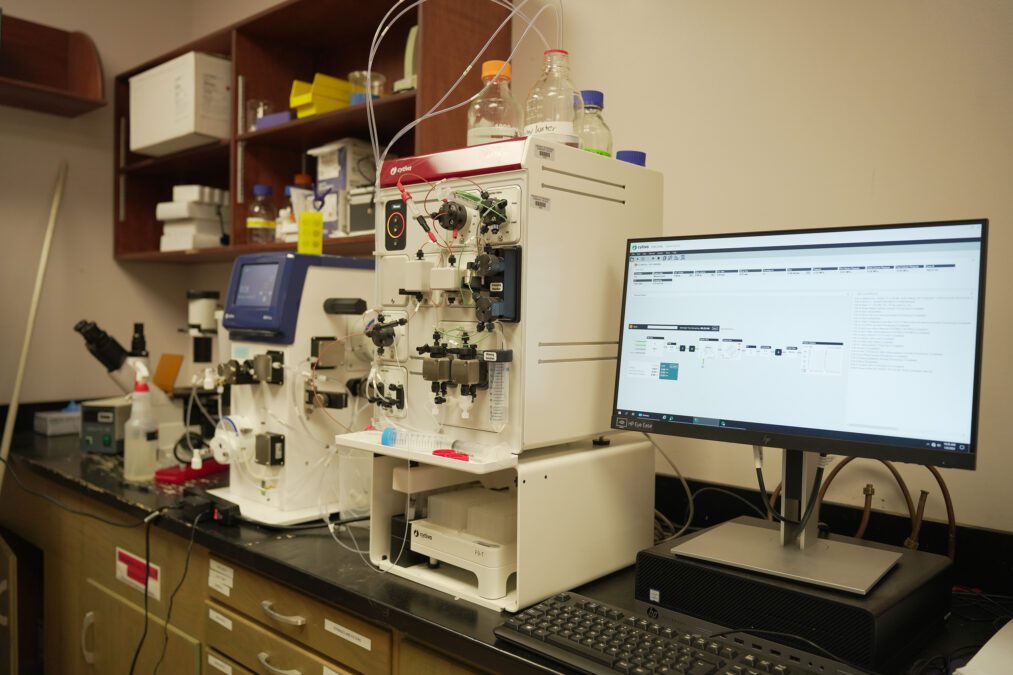
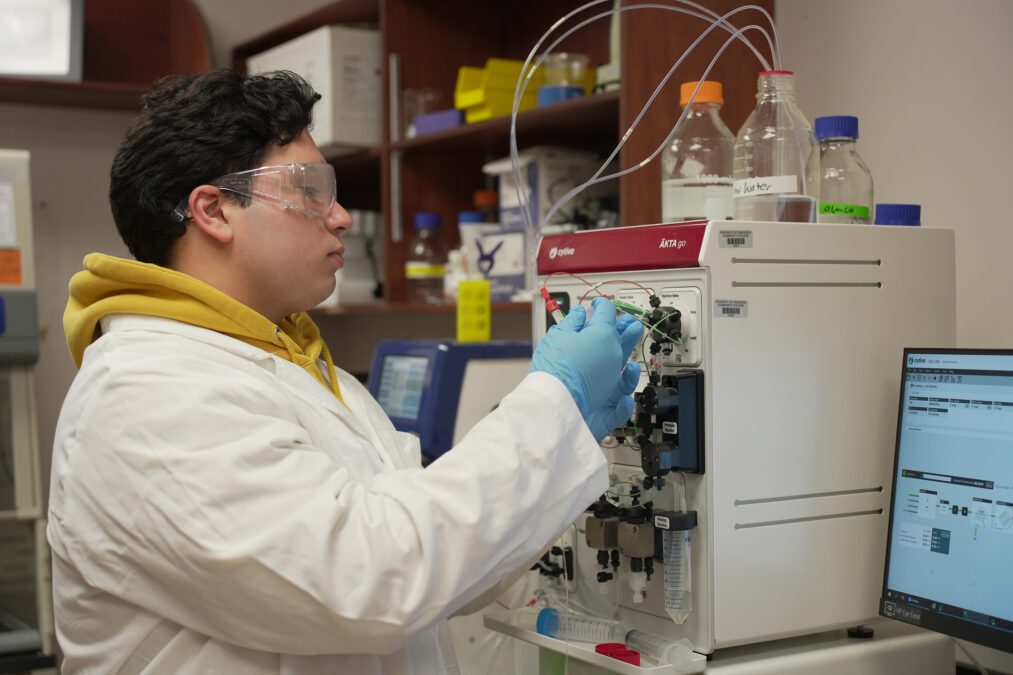
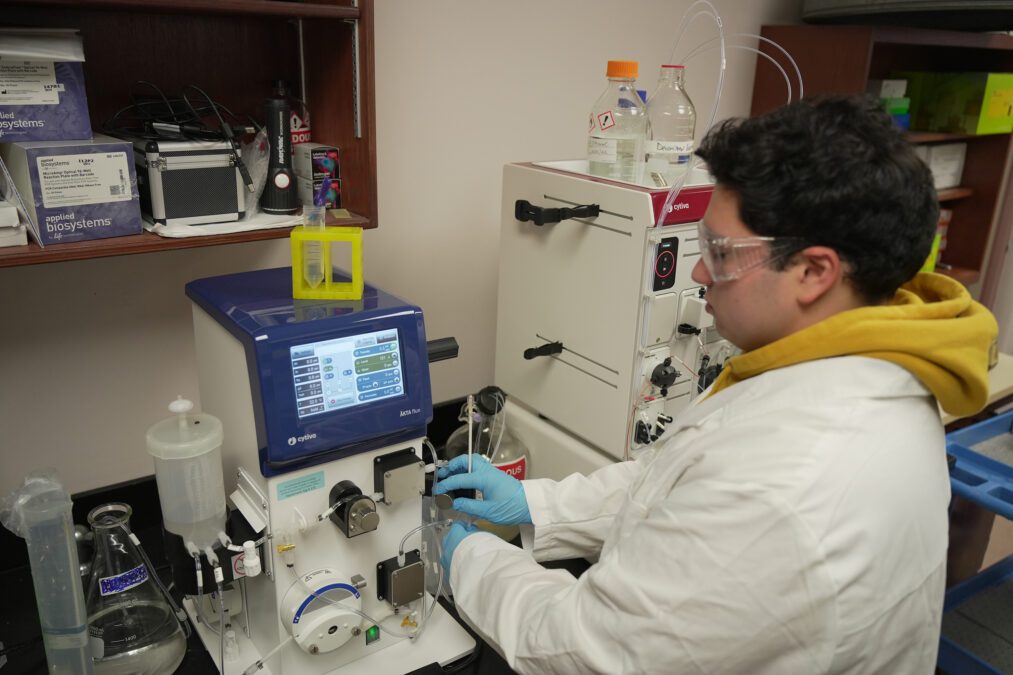
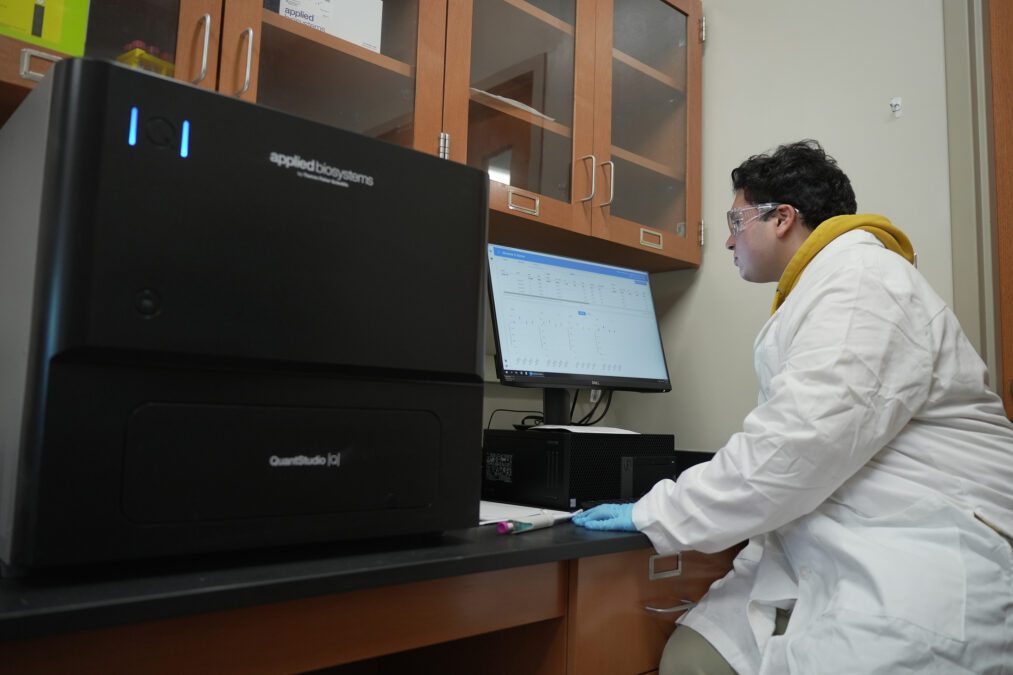
Additional Course Details
Get started with Cell Therapy and Flow Cytometry (BIOT 222) this March. The details:
Duration: 3/13/24 – 5/10/24
Class Days/Times: Weekly on Mon & Wednesday or Tues and Thurs, 5:30pm – 8:00pm EST
Price: $633 total for 37 hours of hands-on lab training accompanied by lecture materials online
Deadline to Register: 3/15/24
Introduces students to the cell therapy field and the associated analytical flow cytometry technique. Students will master the principles of flow cytometry, sample preparation, acquisition, and data analysis. Other techniques used in cell therapy industry such as isolation of T cells, T cell activation, ELISA, fluorescent microscopy, and PCR will be explored. The course may include one or more guest lecturers.
Questions? Ready to get started?
Please contact Dr. Savita Prabhakar, Program Manager, directly.
Email: [email protected]
Phone: 301.846.2564
- About the Author
- Latest Posts
Passion. It’s what makes Cat tick. Born and raised in Baltimore, Cat is a former Division-I lacrosse athlete (Hofstra ’09), entrepreneur, and mom of three (crazy) boys. Over the last 12 years, she’s built and led countless teams (on the field, in the gym, and in the office), scaled programs and brands (in both scope and geography), and driven growth and impact in nearly everything she touches. She loves being part of something bigger than herself and has found a new home within the life sciences as BioBuzz’s Head of Marketing.




